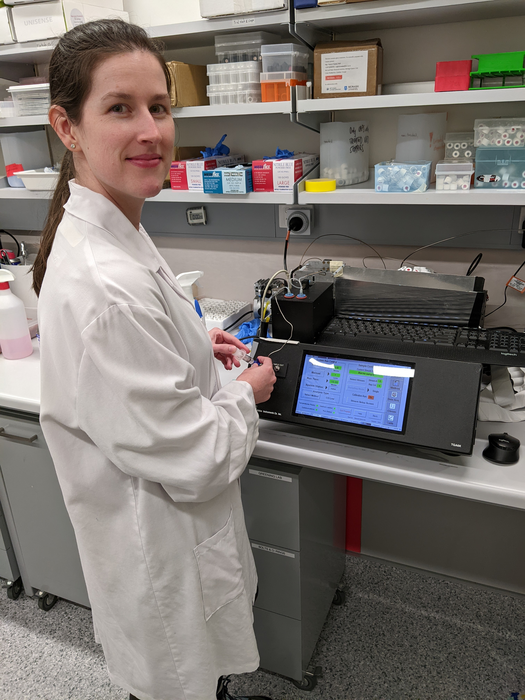A world first study reverses the idea that the bulk of life in the ocean is fuelled by photosynthesis via sunshine, revealing that many ocean microbes in fact get their energy from hydrogen and carbon monoxide.

Credit: Monash University
A world first study reverses the idea that the bulk of life in the ocean is fuelled by photosynthesis via sunshine, revealing that many ocean microbes in fact get their energy from hydrogen and carbon monoxide.
It has always been a mystery as to how microbes growing in deepest parts of the sea survive, with no sunlight. A new study, from researchers at the Monash University published in the journal Nature Microbiology, shows that a distinct process called chemosynthesis – growth using inorganic compounds – fuels microbes in these darkest depths.
The five-year study, led by Dr Rachael Lappan and Professor Chris Greening from the Biomedicine Discovery Institute, reveals that two common gases – hydrogen and carbon monoxide – serve as the fuel for trillions of microbes in the ocean from the tropics to the poles.
According to Professor Greening, until now most scientists have believed that ocean microbial life is primarily driven by photosynthesis (growth by using light energy). “But what about those regions so deep that light can’t penetrate or so nutrient-poor that algae can’t thrive? We showed in this study that instead chemosynthesis is dominant in these regions,” he said.
“Hydrogen and carbon monoxide in fact “fed” microbes in all regions we’ve looked at: from urban bays to around tropical islands to hundreds of metres below the surface. Some can even be found beneath Antarctica’s ice shelves.”
The study involved combining chemical measurements during oceanic voyages with laboratory-based characterisation of microbial cultures. The research team also extensively used metagenomic sequencing, “which tells us the genetic blueprints of all of the microbes present in a given region of the ocean,” Dr Lappan said. “We found the genes that enable hydrogen consumption across eight distantly related types of microbes, known as phyla, and this survival strategy becomes more common the deeper they live.”
For this project, the researchers were inspired by their previous work on soil bacteria. Professor Greening and colleagues have previously showed most soil bacteria can live by consuming hydrogen and carbon monoxide from the atmosphere.
“The surface layers of the world’s oceans generally contain high levels of dissolved hydrogen and carbon monoxide gases due to various geological and biological processes. So it made sense that oceanic bacteria used the same gases as their terrestrial cousins,” Dr Lappan said.
These findings provide insights into how life evolved. Professor Greening concludes that “The first life probably emerged in deep-sea vents using hydrogen, not sunlight, as the energy source. It’s incredible that, 3.7 billion years later, so many microbes in the oceans are still using this high-energy gas and we’ve completely overlooked this until now.”
Journal
Nature Microbiology
DOI
10.1038/s41564-023-01322-0
Method of Research
Experimental study
Subject of Research
Cells
Article Title
Molecular hydrogen in seawater supports growth of diverse marine bacteria
Article Publication Date
6-Feb-2023




